Blind: The tale of a post-nuclear commute
A new short depicts gas masks as the norm on the streets of Shibuya
Posted: Wed Aug 17 2011
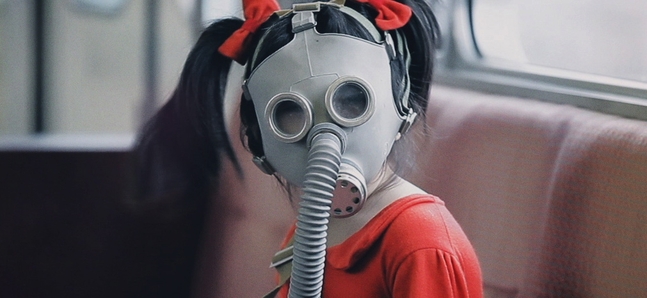
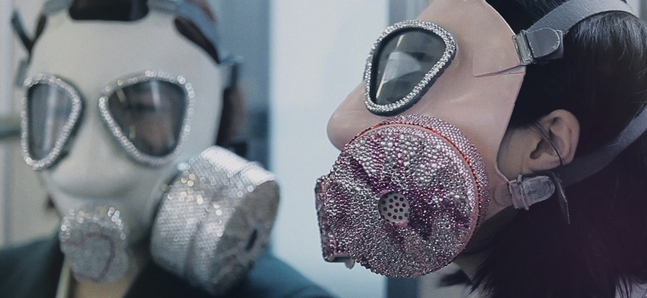
As foreigners living in Tokyo, the questions we deal with most these days concern safety. These questions come in a variety of guises, from the point-blank ('Is Tokyo safe right now?') to the cautiously silly ('Are your fish glowing green?'). The answers aren't easy, and can probably be best summed up thus: 'Tokyo looks normal, but there's a sense that something's not quite right.' Even more accurately: 'There's something in the air...'
A new short currently being made in Tokyo manages to put that sense of unease into vivid images. Blind depicts the daily Tokyo commute in a post-nuclear society: not the Tokyo we're living in now, but one envisaged a few years into the future. Gas masks are essential, but they've become the norm (look out for the high school girls with their Harajuku-esque face filters). What we've seen of it is fascinating – beautifully shot and subtly directed, raising questions about how our own society is reacting to something invisible but potentially life altering. It also questions the speed with which we try to assimilate. Is the ability to adapt always a good thing?
The film is being self-financed using Kickstarter (still relatively unknown in Japan) as a platform to raise sufficient funds. At the time of writing, the principal photography is complete. However, in order to complete the final cut, the producers need help. With this in mind, we spoke with the film's director, Yukihiro Shoda, and Pasha Alpeyev, a producer and journalist living and working in the capital. The interview is printed below. First, though, a clip from Blind itself.
Explained briefly, what is Blind?
Blind is a short film, a 5-minute sojourn through a parallel-universe version of Japan which also suffered a nuclear crisis but was less lucky than its real world counterpart. It is a place where fallout readings are part of the weather forecast and gasmasks are as ubiquitous as black suits and Gucci bags.
How did the idea come about?
We wanted a piece that reflects the surreal quality life in Tokyo has acquired since the disaster, a kind of low-current tension of daily routines heightened by a hidden threat of radiation. One of the producers suggested using gas masks as a way to make that fear visible without being overdramatic.
Which actors and actresses are being used?
Originally we were planning to ask Nobushige Suematsu (of Babel fame), but decided he was too handsome for the lead role [laughs]. Tetsuya Oda played the male part, Yume Kitano played the young girl and Risa Watanabe was the expecting mother.
Who did the designs for those very Harajuku style gasmasks, and where can we buy one!?
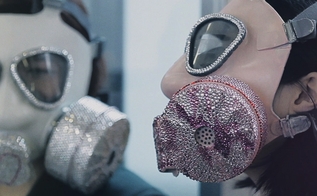 Our makeup artist Mio Shoji spent countless hours making the masks. They ended up being the most expensive part of the production. We decided to give masks as rewards in our Kickstarter fund-raising campaign, and they were gone in 2 days, despite a hefty $400 price tag! But maybe you can convince Mio to make another one for you...!
Our makeup artist Mio Shoji spent countless hours making the masks. They ended up being the most expensive part of the production. We decided to give masks as rewards in our Kickstarter fund-raising campaign, and they were gone in 2 days, despite a hefty $400 price tag! But maybe you can convince Mio to make another one for you...!
What are your hopes for the film? What do you hope it can achieve?
First and foremost, to deliver the message. Japan is at a crossroads of sorts. Before life gets completely back to normal, we want people to take a hard look at reality and consider the possibilities. Also, we hope more creators in Japan will find out about Kickstarter. There is a lot of talent here that people abroad just don't get to see.
Do you feel your daily life here in Tokyo is still affected by Fukushima?
What's immediately visible are the power-saving measures: darkened streets, dimmed shop front lights. Some companies have staggered their weekend shifts, making it a little bit harder for people to get together. And then you have the whole issue of food contamination: cesium found in meat, fish and vegetables. That story is just beginning to unfold.
What would you like to see done about the Fukushima situation?
The film crew members have various opinions on the issue, but most of us agree that the wellbeing of the people should be put ahead of everything. You get the feeling that it doesn't always happen. Especially when it comes to children, trite as that sounds. They haven't had a chance to exercise their choices yet.
What's the next step for Blind?
We still have less than a week for our Kickstarter campaign, then it's on to post-production. We plan to promote the film to festivals worldwide. Then use the momentum for the next project!
Click to head to the official Blind Kickstarter page
Tweets
- About Us |
- Work for Time Out |
- Send us info |
- Advertising |
- Mobile edition |
- Terms & Conditions |
- Privacy policy |
- Contact Us
Copyright © 2014 Time Out Tokyo










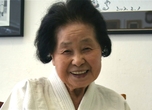
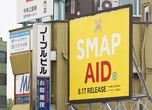
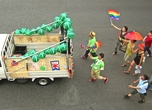
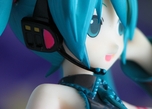
Add your comment